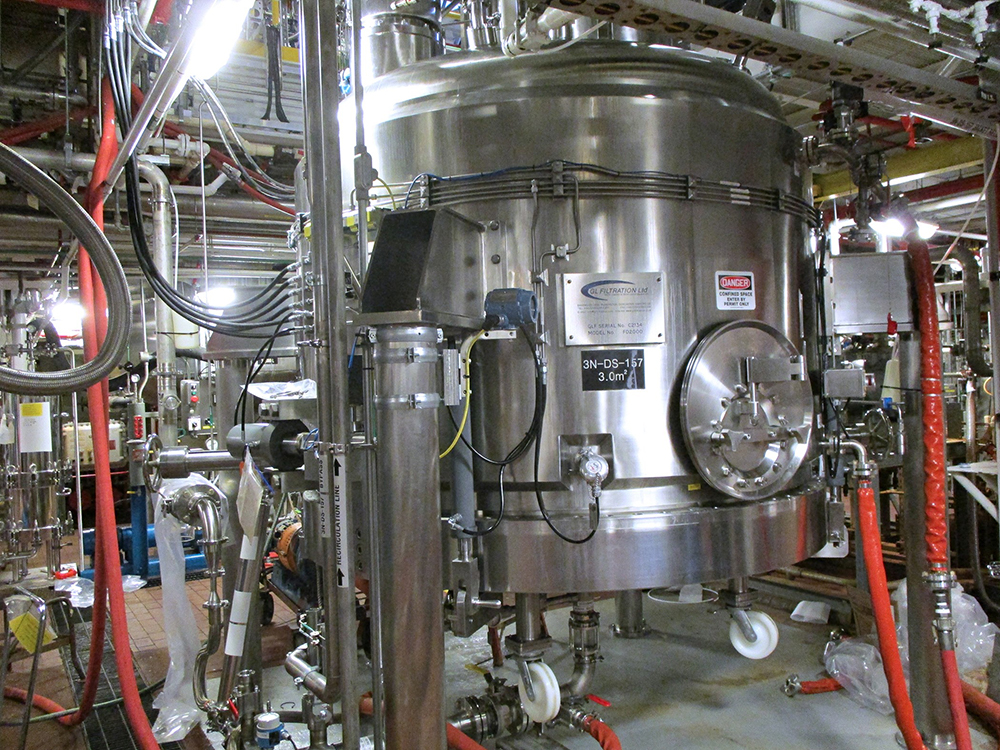
Multi-track investment for CordenPharma
Submitted by:
Andrew Warmington
CDMO CordenPharma is planning to invest heavily in all its platforms in terms of both capacities and capabilities, according to Dr Stephen Houldsworth, global head of platform management and marketing, who spoke with SCM at CPhI Worldwide in Milan.
In high potency, the firm had just signed off on an €9.7 million expansion of its development capabilities at its facility at Plankstadt in Germany and this was officially confirmed at the end of November. Plankstadt is the company’s centre of excellence for the development and manufacture of highly potent oral solid drug products for compounds with an OEL level of <1 µg/m3.
The company described the installation of a fourth facility there as “a response to our customers’ demands and the recognition of gaps in scale, formulation development technologies for insoluble APIs, and manufacturing of capsule products”. This will bridge the gap between an existing 5-20 kg GMP facility and two production facilities, making GMP batches up to 50 kg. Capabilities include blending, granulation high shear, fluid bed, roller compaction granulation, compression, and coating. It is also adding high potency filling equipment, hot melt extrusion and the ability to operate with organic solvents. The targeted completion date is Q3 2022.
CordenPharma has also added capacity in non-GMP peptides at Fechenheim, Germany. Hitherto, this had been a development laboratory with no manufacturing capabilities. Now it will be able to manufacture at hundreds of grams scale for tox studies and other non-clinical work.
“This gives us the ability to develop the process and make the demonstration batches at the same site before we take it over to one of our GMP manufacturing facilities,” Houldsworth said. “We are also in the finalisation stages of a huge expansion there to manufacture GMP peptides as well. We’ll have small-scale GMP manufacture in both Europe and North America, both solid- and liquid-phase.”
Earlier, CordenPharma had increased its peptide purification capabilities in Colorado, adding a 1-metre column. Multiple customers are bringing many more peptide drugs through the clinic that, if successful, will require large-scale manufacturing. This investment is part speculative, part as a result of signed contracts, but all driven by increasing demand, Houldsworth added.
Even on the show floor in Milan, the company was receiving enquiries, in some cases from customers it had not previously known to be active in peptides. There is also growing interest from customers in new formulation developments in peptides, both oral and inhalation. Tying in with this on the injectables side, the company has broken ground on an both an R&D facility and a clinical-scale manufacturing facility for lipid nanoparticle formulation development at Caponago, near Milan.
We see the lipid nanoparticle as being the future for things like peptide and oloigonucleotide formulations,” Houldsworth said. “Right now, we can do the manufacturing but we need customers to bring the formulations to us already developed. This will see us able to do that for them and to direct the formulation in a way that will work better for our equipment.”
CordenPharma is already one of the world leaders in large-scale lipid manufacturing, having scaled up “dramatically” to meet the needs of Moderna’s COVID-19 vaccine. In the process, it added capabilities like supercritical fluid chromatography at its sites in Wiestal, Germany, and Chenôve, France, plus large-scale manufacturing capacities in the field.
Earlier, CordenPharma has completed the first phase of a strategic investment in a centre of excellence for flow chemistry at Chenôve, which has been active in flow projects over the past five years. To date an R&D laboratory has been renovated using advanced flow chemistry equipment. It is headed by is Dr Clemens Horn, who has 14 years of relevant experience and was a senior research scientist at Corning.
The second phase has also been initiated, including the design and construction of a dedicated GMP flow chemistry pilot facility at Chenôve. This should be completed by the end of the year. It will consist of flexible equipment that will enable it to manufacture multiple 100 kg quantities, depending on reaction parameters and throughput.
Further investments in this area are being considered for to expand scale-up resources so as to facilitate the execution of processes at increasing scales, while designing custom manufacturing skids and processes. The rapid expansion is reflected in and facilitated by extremely strong growth in the pharmaceutical market as a whole, according to CEO Dr Michael Quirmbach. While the company does not disclose detailed financial figures, it expects to have sales of over $750 million this year, up from $387 million in 2019 and $500 million in 2020.
